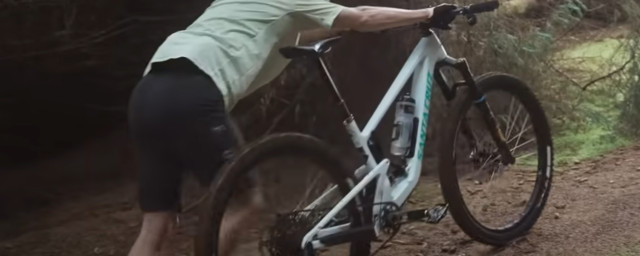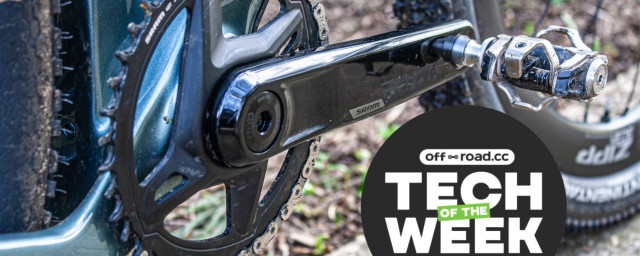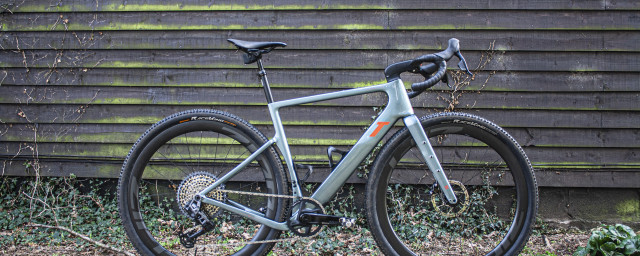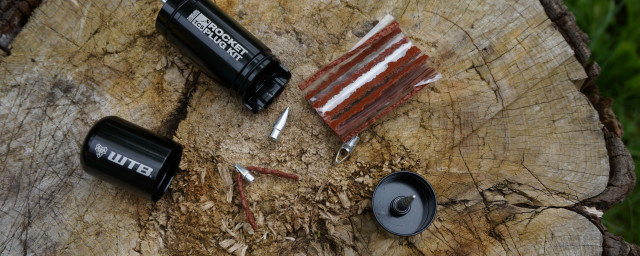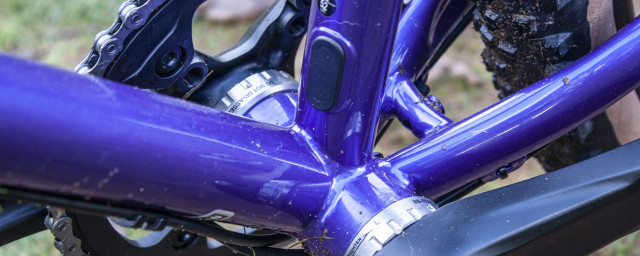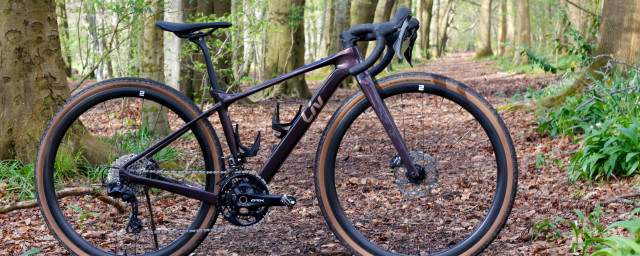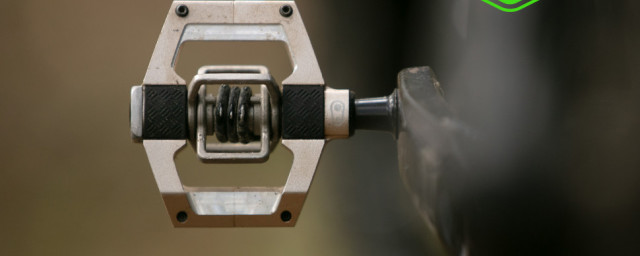MRP's Baxter fork offers more cushioning and comfort for gravel and adventure bikes with a simplified suspension platform that offers easy setup and reliable performance, but you'll have to balance the expense, weight and potential frame compatibility issues versus the comfort and control gains.
- Your complete guide to the Fox Shox fork range
- The best gravel and adventure bikes you can buy for under £2,000
Built on 32mm stanchions, with 40mm travel, the fork weighs in at a touch under 1.6kg, depending on your steerer length. They come with a 1.125-1.5" tapered steerer as standard but are also available in a straight 1.125", which could be a useful option for older frames. They're air sprung with a three-position compression dial, and rebound adjustment. This allows a decent amount of set up alteration and is a genuine suspension option.
With a 160mm post mount, they offer a decent sized rotor for most use. In terms of tyre clearance, depending on what wheel size you run, you can sneak in a 2.5” 27.5 tyre or a 700x40c (something like a Nano fits fine). Speaking of wheels, there is a QTAPER axle with the choice of 12mm or 15mm options, the latter with a shim. The axle is a really simple design that allows you to tighten it on the non lever side, so you can set the lever force to just the right load, and get the lever in a nice position easily.
The overall quality of the fork is great - its all black and subtle graphics making it look really classy. It weighs in at 1.6kg or thereabouts. This isn't a huge amount but that's at least 1kg more than a rigid carbon fork, so the offset here is added weight but more comfort and control.
At first, I was a little dubious to how much point there was to the 40mm travel, as my concern is that you are having to ensure the back wheel will track and not puncture whatever you are sending the front end of the bike through. There is also the issue of what the axle-to-crown length will do to your frame geometry. I rode the fork on a very slack frame angle, and it didn't cause any issues. I suspect we’ll see more and more gravel or adventure frames with geometry that will happily take a suspension fork though.
Once on the bike, with air pressures set up, my first ride was spent dialling in the rebound and compression settings. You can have it pretty lively, but I found I settled on a firmer feel, so when climbing there was less of the 'bob' that comes from suspension forks. I also preferred the fork taking away sudden squarer edge hits, like potholes or rocks, and it allowed to take some braver lines than usuals on some of the unmade tracks that have a lot of old bricks and rubble in.
Out for longer periods, there is a definite reduction in hand buzz, and arm pump - its not exactly a rough singletrack slayer, but it was fun to search for the point at which the fork becomes overwhelmed. Forest doubletrack with small sections of trail centre singletrack become an option in the dry, with the G-One tyres I used, if you have something more off-road focussed tyre wise, then a lot of options are opened up by the forks. It's fun whipping through singletrack on a bike that looks like it doesn't know if its a drop bar MTB or a gravel bike.
Ride characteristics are subtle, you don’t much notice much movement with the fork when seated, and only a small amount when climbing out of the saddle. Best described as always there when you need it and providing an extra level of vibration reduction, coupled with the ability to take some larger hits - it's plush but doesn't blow through travel, despite the relatively small amount the fork has. Set up fairly firm, I liked the extra bit of comfort, but did find it a little unnerving having fairly frequent back wheel hits - you have to adapt the way you ride the bike, you can’t plough through all the time, but more finesse lines and the forks provide a little more ‘grey’ area in line choice.
When compared against the Fox AX gravel suspension fork we've reviewed earlier, they felt a little simpler and perhaps unrefined, and whilst a little cheaper, I didn't feel they had as much set up control or refining elements to the shock feel. They certainly aren't loads worse, but as a comparison, the Fox feels smoother and a more advanced option though it does cost more. The biggest difference is more to the way the fork will affect the geometry and how worthwhile actually having the suspension is. My feeling is that on longer and rougher rides, it has its moments, but the weight addition has to be considered within this.
The Baxters are a worthy addition to a bike if you are riding a lot of harder, rougher tracks and trails, or even for longer multi days, to reduce fatigue. The retail price is more than a good pair of carbon forks and it's a considerable outlay, but the performance is there, it's just whether you will need it. With a rigid fork and big tyres, you have a simpler set up if you are miles from any sort of repair, and being away on a trip, with a failure with suspension could be a headache. I had no issues on the test with this and this is a bigger conversation perhaps, and for the job the Baxters are intended, you can’t fault them for it.



